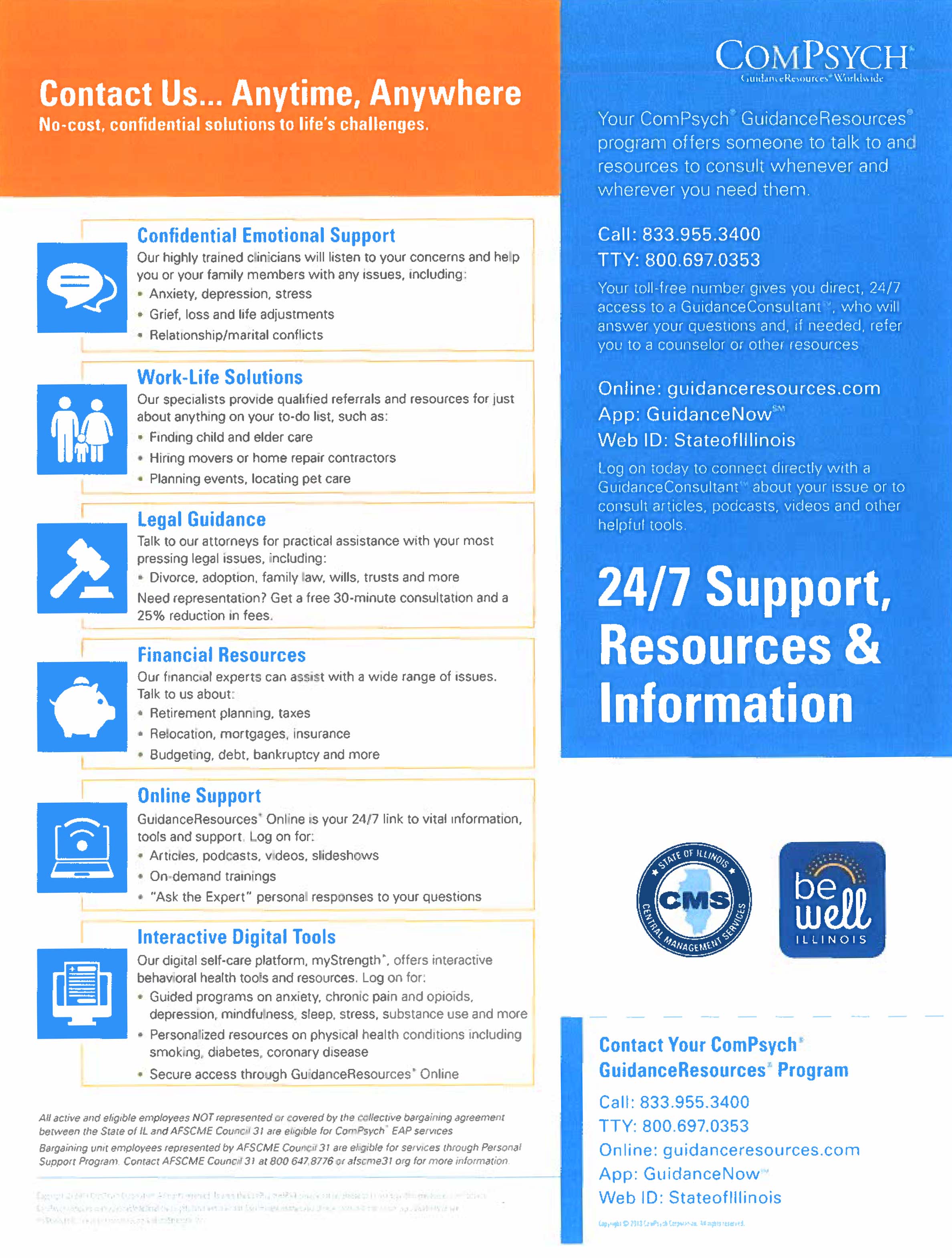|
Consultations Cover:
- Any concerns you are having about the mental wellness of a student
- How to talk with a student about the Counseling Center
- Sudden tragic events that impact your student such as an unexpected death of a student
in your class. The Counseling Center can offer debriefing
- Program planning
- Guidance regarding where to refer a student
- Answering general mental health questions
|
|
If you believe the situation is an emergency:
On campus contact the CSU Campus Police at (773) 995-2111 and off campus call 911
identifying the student in distress
As a faculty or staff member interacting daily with students, you are in an excellent
position to recognize behavior changes that characterize the emotionally troubled
student. A student's behavior, especially if it is inconsistent with your previous
observations, could well constitute an attempt to draw attention to their plight:
"a cry for help." Your ability to recognize the signs of emotional distress and your
courage to acknowledge your concerns directly to the student are often noted by students
as the most significant factor in their successful problem resolution. Below is a
list of signs that may indicate that a student is in distress:
Academic Signs
- Significant shift in quality of work
- Missed assignments or appointments
- Repeated absence from class, exams, and other activities
- Continual requests for unusual accommodations (late papers, extensions, postponed
exams, etc.)
- Essays or papers that express hopelessness, social isolation, rage, or despair
- Lack of engagement in participation-oriented classes
- Inappropriate disruptions
- Monopolizing classroom time
Physical or Psychological Signs
- Excessive anxiety or panic
- Apathy, lack of energy, a change in sleeping or eating habits, or dramatic weight
gain or loss
- Marked changes in personal hygiene, work habits, or social behavior
- Mood elevation
- Isolation or withdrawal
- Overtly suicidal thoughts, such as referring to suicide as a current option
- Giving away treasured personal possessions
- Increased irritability or aggressive behavior
- Bizarre thinking, seemingly at odds with the reality of the situation (such as paranoia)
- Excessive use of alcohol/drugs
Other Factors to Consider
- Direct statements indicating family problems, personal losses such as death of a family
member or the breakup of a relationship
- Expressions of concern about a student by peers
- Written note or verbal statement that has a sense of hopelessness or finality
- Your sense, however vague, that something is seriously amiss
What You Can Do
Taking the step to assist a student can save a life (or many lives). An individual
who is distressed often wants help but doesn't know how to ask. You can begin the
process by expressing your concern in a caring, nonjudgmental way. By offering assistance,
you can play an essential role in maintaining the health and wellness of our students
in their pursuit of academic excellence.
- Find a private, comfortable place to talk. Give the student your undivided attention.
It is possible that just a few minutes of effective listening on your part may be
enough to help the student feel comfortable about what to do next. Ask if the student
has ever talked about this problem with anyone else, including a counselor. Try to
get an accurate understanding of the issues, and, if appropriate, encourage the student
to talk about the situation with a professional.
- In your own words, express your concern using statements like, "I'm concerned that...".
- Ask open-ended questions. The student may choose not to answer, but may feel relieved
to know you are trying to understand.
- Don't feel compelled to find a solution. Often, listening is enough.
- Suggest that the student can get more help, if needed.
- Don't hesitate to ask for support from the Counseling Center staff, Director of Health
& Wellness Services, or the Dean of Students.
How to Make a Referral
Do not attempt to make a referral when the student is so upset and confused that they
cannot understand or listen to you. Wait until the student has calmed down enough
to be able to converse and respond to your suggestions.
- Suggest that the student make an appointment with the Counseling Center staff by contacting
us at (773) 995-2383 or CRSUB 190.
- If necessary, you can help the student make an appointment. Call the Counseling Center
at (773) 995-2383 while the student is with you. Write down the appointment details,
including time, counselor’s name, and location of the Center.
- If the student is hesitant to make an appointment, explain to the student that:
- Counseling at Chicago State University is confidential. This means that information
about the student cannot be released to other University offices, family members or
faculty without the student’s written permission (except when the student is in danger
of harming himself or herself or others). Counseling records are not kept with any
academic records and are protected by law.
- The services are free to currently registered CSU students.
- The first meeting is an intake or consultation session.
Students In Crisis
A crisis is a situation in which an individual's usual style of coping is no longer
effective, and the emotional or physiological response begins to escalate. As emotions
intensify, coping becomes less effective, until the person becomes disoriented, nonfunctional,
or attempts to harm self or others. If a student is in a serious mental health crisis,
you might see or hear the following signs:
- Suicidal statements or suicide attempts
- Written or verbal violence or acting out violently
- Destruction of property or other criminal acts
- Extreme anxiety resulting in panic reactions
- Inability to communicate (e.g., garbled or slurred speech, disjointed thoughts)
- Loss of contact with reality (e.g., seeing or hearing things that aren't there, expressing
beliefs or actions at odds with reality)
- Highly disruptive behavior (e.g., hostility, aggression, violence)
|
|
The following trainings have been created to support both faculty and staff in understanding
the mental health needs of students and available resources." The counseling center
would hope that you find the presentations helpful. If you have any questions, please
reach out to the counseling center at (773)995-2383
|
|
Counseling faculty will come to your class/meeting and present a talk on topics such
as:
- Test-taking anxiety
- Stress management
- Emotional self-care
- Psychological wellness
- Grief and Loss Issues
- Anger Management
The Counseling Center can also tailor a presentation to your specific needs.

|

